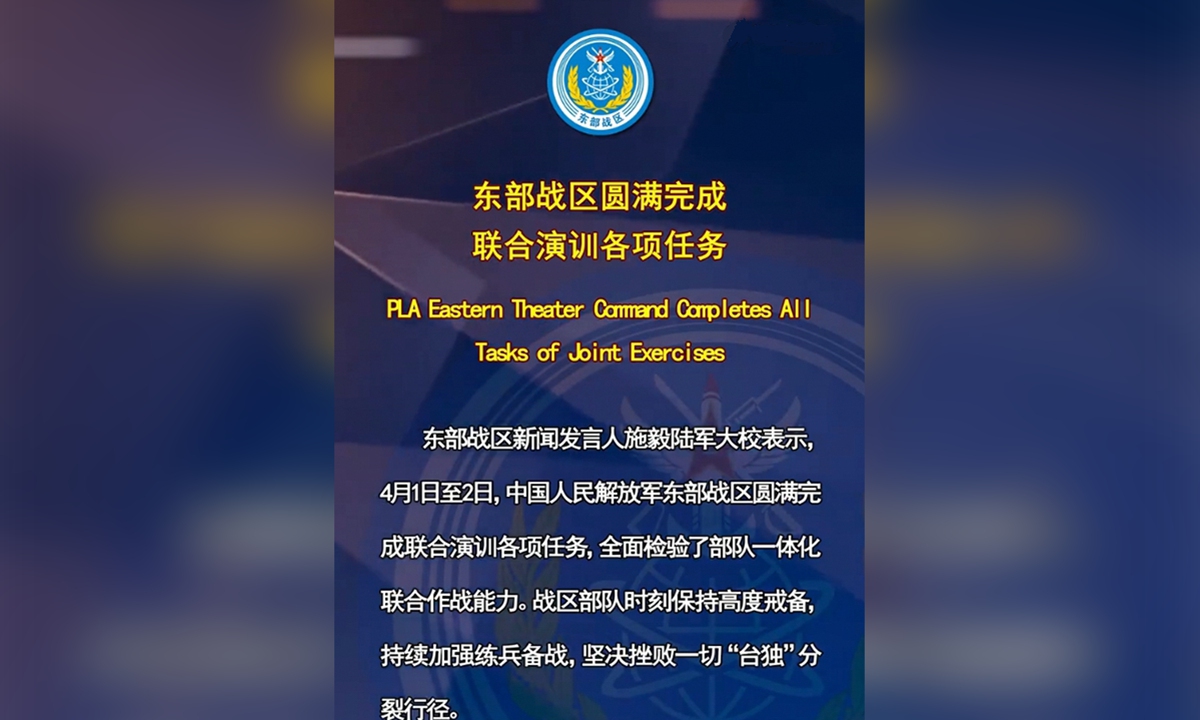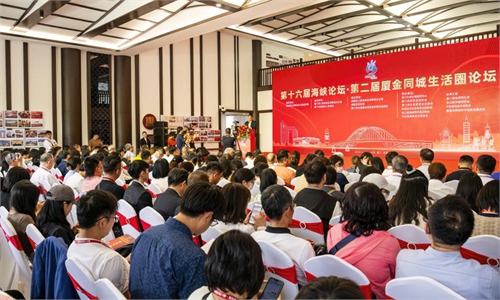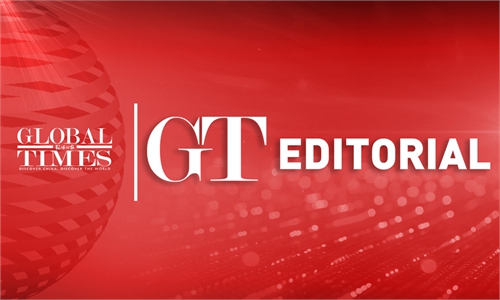What does Lung Ying-tai’s rare criticism of Lai Ching-te reflect?: Global Times editorial

Screenshot from Eastern Theater Command's official weibo
The Lai Ching-te administration, driven by the addiction to "Taiwan independence" and acting in reverse, has caused sustained turmoil and panic within the island.Recently, Taiwan-based author Lung Ying-tai published an op-ed in The New York Times, in which she recounted the concerns of a Taiwan cabdriver over the island's future. She criticized Lai for being oblivious to these sentiments and insisted on labeling the Chinese mainland as a "foreign hostile force," going for "fear, confrontation and a revival of dark Cold War rhetoric." Lung argued that "there can be no democracy without first ensuring peace" and expressed conciliation several times in the article.
Lung did not explicitly state her stance on cross-Straits reunification and still appears unclear about the fundamental nature of cross-Straits relations, but her criticism of Lai's administration and her reflection on the dead-end nature of "Taiwan independence" align with the growing discontent on the island.
Since Lai put forward so-called "17 strategies" in his separatist agenda, opposition and even outrage in response to his reckless words and actions have gained significant momentum.
Hung Hsiu-chu, former chairperson of the Chinese Kuomintang (KMT) party, criticized Lai's flip-flopping rhetoric and contradictory logic in his efforts to conduct political manipulation.
Veteran media personality Jaw Shaw-kong also condemned Lai for relentlessly provoking the mainland and recklessly placing Taiwan Straits security on the chopping block, warning that he would go down in history as a criminal.
Even those who were previously reluctant to openly support reunification have begun to realize that "Taiwan independence" is a dead end. On some social media platforms dominated by "pro-green" netizens, voices opposing Lai have been growing louder. One remarked, "My deeply pro-green self in 20s never thought I'd come to despise the DPP this much." Some figures from the Green camp have also voiced concerns. For example, DPP Kaohsiung City Councilor Huang Ming-tai recently called on Lai to unite 23 million residents in Taiwan, stating that "Taiwan cannot afford separation." His remarks received strong support from both KMT New Taipei City councilors and independent councilors. They were seen as a heartfelt expression representing the silent majority amid the island's increasingly tense and polarized political climate.
Lai is the common enemy of people on both sides of the Taiwan Straits. Since taking office in May last year, he has stubbornly upheld his "Taiwan independence" stance, brazenly provoking the mainland, inciting anti-China sentiment, obstructing cross-Straits exchanges and cooperation, and escalating tensions in the Taiwan Straits.
In an attempt to intimidate the people of Taiwan, Lai has repeatedly hyped up so-called "defense resilience" and "all-out defense mobilization," boasting about mobilizing 400,000-strong "civilian forces" to serve his "scorched earth" strategy. Why was the cabdriver in Lung's article so terrified? It is because Lai has already included cabdrivers and security guards in his so-called "disaster response" training program this year.
Lai fantasizes about turning every citizen in Taiwan into a "walking bomb" for the "Taiwan independence" separatist forces. But in reality, whichever group he targets ends up with strong resistance. A recent poll in the island showed that nearly 70 percent of respondents were unwilling to send themselves or their family members to the battlefield, and they rated Lai's cross-Straits policies with a low score of 37.6. The public outcry in Taiwan - "Hey, call your son back to fight!" - directly exposes Lai's selfishness and hypocrisy.
The PLA Eastern Theater Command has completed all the designated tasks of the joint exercises carried out from April 1 to 2. The exercises tested the troops' joint operations capabilities. Troops from various military services including the army, navy, air force and rocket force comprehensively participated in joint combat and close coordination, and carried out "Closing In," "Enveloping Advance," "Paralyzing Strikes" and "Overwhelming Grip" on "Taiwan independence" separatist forces.
These military exercises are a strong counterattack against Lai's "green terror" campaign and also serve as a stern warning and effective deterrent against the "Taiwan independence" separatist forces. When news of the exercises reached Taiwan, Koo Li-hsiung, head of the so-called "defense department" of the DPP authorities, trembled and stammered during a media interview. Hsu Tsung-mao, a correspondent for the Taiwan-based China Times, wrote that the mainland's joint exercises are no longer what they used to be, and Lai's administration's efforts to stir up "anti-China" sentiment are futile. The source of fear in Taiwan is the Lai administration.
Wang Kung-yi, head of the Taiwan International Strategic Study Society, a Taipei think tank, also stated that Taiwan people believe that the Chinese People's Liberation Army will only target "Taiwan independence" separatist forces and will not attack ordinary citizens. He believes that a "decapitation operation" against "Taiwan independence" is not far off.
In a recent speech regarding the Taiwan question, former ambassador of Singapore to the UN Kishore Mahbubani stated that those promoting "independence" must understand the dangers involved. He likened the push for "independence" to locking oneself in a small prison and throwing away the key.
The more aggressively "Taiwan independence" separatist forces act, the faster their demise will come; this trend has already formed. The Chinese people, including the people of Taiwan, see this clearly, and the international community also recognizes it. Whether Lai's administration remains obstinate or deceives itself, it cannot change the historical conclusion that China must and will be reunified.


